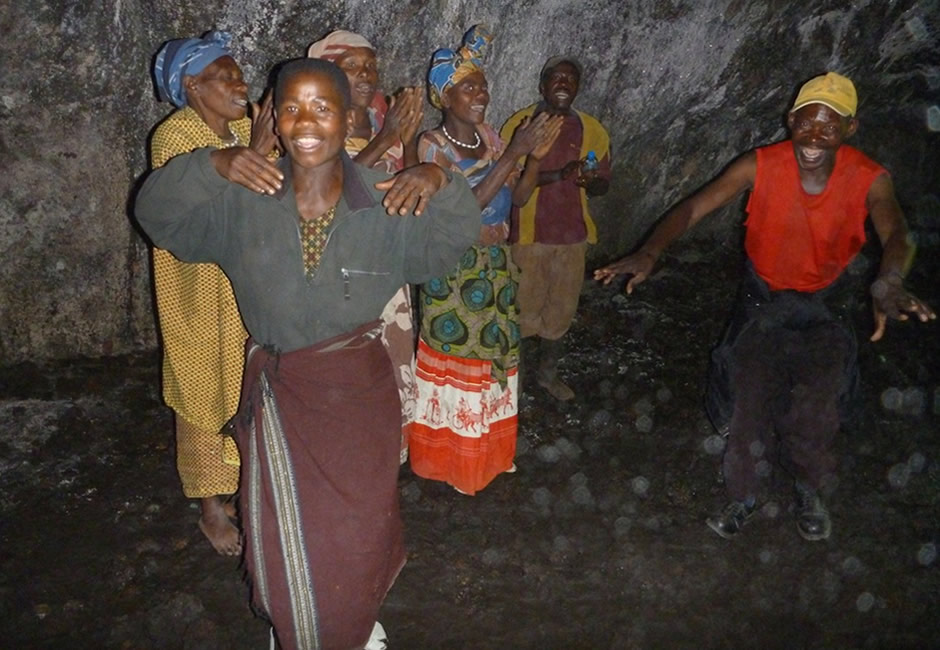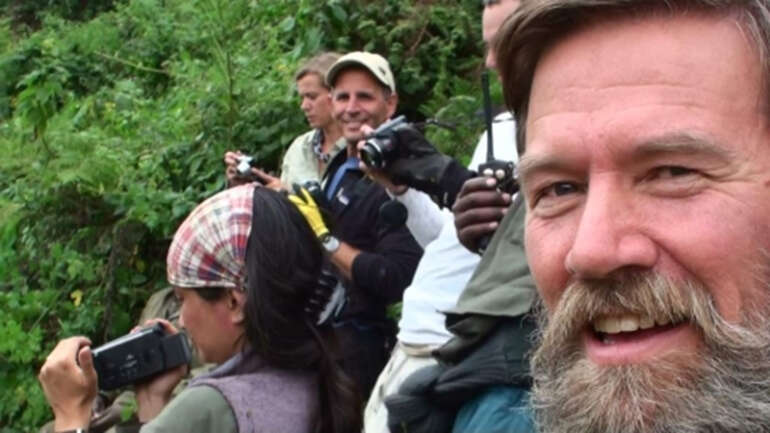With mountain gorillas found in south western part of Uganda in the Bwindi impenetrable forest national park and Mgahinga gorilla national park, the two national parks are restricted from human settlement mostly to the Batwa who make 1% of Uganda’s total population.
Bwindi and Mgahinga were initially tropical rain forests which were gazetted into national parks in 1990. The tropical rain forests were the permanent settlement for the Batwa/pygmies that dwelled there full time and depended on the forest for everything they wanted. The creation stories of the Batwa tells that when God was giving out gifts, he gave some people height, and others prosperous land and riches, however by the time God reached the Batwa people, all other gifts were finished and he gave them the tropical rain forests which they believed belonged to them.
They had access to all natural resources in the forest including the bush meat, firewood, water, and honey among others. Unfortunately, all these rights were restricted since 1991 when the national parks were gazetted. The Batwa were evicted and pushed out of the forest forcing them to settle at the edge of the national park. Life seemed to be difficult for them at first living out of the forest which they knew as their permanent settlement, this forced Scott Kellermann a researcher who dedicated to become the voice of the Batwa to the government official so that the batwa would be allowed to settle in the forest.
Having mountain gorillas as the most endangered ape specie and so close to human beings, the unlimited access to them by the local people (Batwa) led to the extinction and los of gorillas. The increased population and the increased poverty led forced people to cut tress and hut wild life to support their lively hoods until when the government stopped them with strict laws. Human habitation within park boundaries was forbidden, and the Batwa were forced out of the forests at gunpoint and where not compensated for because they had not built permanent structures and did not tend crops.
The Batwa lived terrible lives out of the forest with children having swollen bellies and rail-thin adults indicating severe malnutrition, poor sanitation in their communities, and a lack of medical care.
According to the united organizations or Batwa development in Uganda, Most Batwa children drop out of primary school, further ensuring a precarious future for their people in that it is only three of the few thousand Batwa living in Uganda that have earned college degrees.
Unfortunately, kellerman was shocked at the Batwa who didn’t appreciate his efforts and rejected his request from the government official that they did not want to go back to the forest. This was really contrary to the expressions of gratitude and waves of joy that he expected from the Batwa. It was later that kellermann realized his mistake of attempting to advocate for the Batwa without consulting them.
The eviction was done by the government in the name of conserving wild life and promotion of tourism, however, in contrary to that, the senior planning and environment impact assessment officer of the Uganda wild life authority said that the Batwa were also human beings who needed to live normal life rather than bush men.
The removal of indigenous people from their homelands, or stripping harvest rights from locals, is not only unnecessary but counterproductive because locals are believed to conserve and support tourism if they are involved in conservation programs as it sustains their livelihoods other than chasing them which leads to loss of trusts and illegal poaching by the local people and natural resource conflicts.
However, despite of all that happened, it still stands that the Batwa has the right to access the national parks since it is their ancestral lands or otherwise get compensation from the government. They should also be recognized as the owners of the land. The campaign is led by Kenneth Turyamubona a Mutwa who has managed to get a degree alongside other two people in the whole batwa culture.
Multiple zones and development projects have been created by the government but these programs have not helped the people who lost most of their land. It has not dissuaded locals from illegally accessing the forest. It is unfortunate that many of the poorest can’t get permits to access the natural resources.
Kellermanns helped the Batwa organize and establish the Batwa Development Program in 2008. It focuses on education, health care, land and food security, and self-determination for the Batwa; he also established the Bwindi Community Hospital that has improved people’s lives in that the area it serves has achieved a much lower mortality rate compared with the rest of Uganda, and a drop to 6 percent for children under five from the 40 percent that prevailed when he got there.
In order to respond to the Batwas’s interest of teaching their kids the traditional songs, stories and legends in the forest, scottermann bought 150 acres of land and established a cultural centre for the Batwa where they practice their forest life as well as the tourists.
In conclusion therefore at present, the Batwa have been realized to have developed the voice to express their needs and the BDP council that represents the Batwa has approached the government officials and resolved the issue.
Batwa Cultural Trail
The Batwa cultural trail provides the Batwa with employment and they get 8000ush per participation which has improved their standards of living.
Buniga Forest Walk
After your gorilla safari you should also taking an organised tour that is aimed at settling the Batwa Community and improving their standards of living. The Buniga Forest walk is one of such initiatives that can help out these communities.

